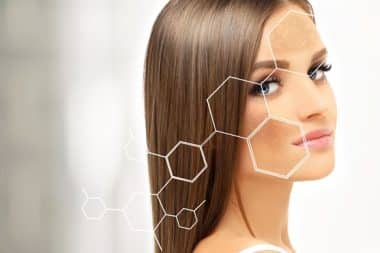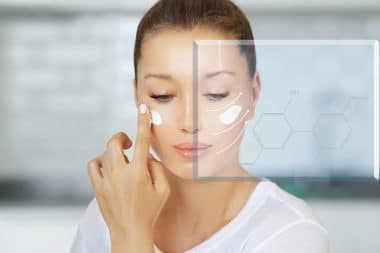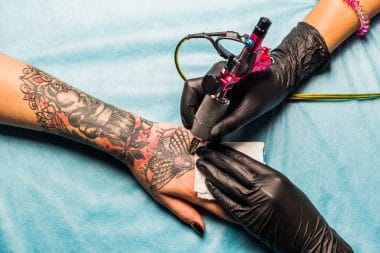How do you choose your skincare products? Are you the type who buys something just because your friends like it or because it smells good? Or are you someone who is automatically attracted to fancy packaging and to branded products? Well, according to celebrity estheticians Renée Rouleau and Biba de Sousa, these are the few worst things you can do when choosing a skincare product. Instead, you should realize the importance of checking the ingredients to avoid if you have acne or if you are prone to acne.
Like what we always say, prevention is better than cure. And since there is no cure for acne, the next best thing is to prevent it. Start from reading the label and knowing what to look for in the label of every skincare product that you are eyeing to buy. It may sound like it’s too much work, but you’ll get used to it. And you’ll realize that every effort is worth it. Without further ado, below are some skincare ingredients that you have to avoid if you have acne-prone skin or if you have acne:
- Coconut Oil
If you belong in the fan base of coconut oil, then it might be time to leave the squad if you are serious about getting rid of your acne. Coconut oil is highly comedogenic, which means it produces excess sebum that can clog the pores and cause acne. However, if you have dry skin, it’s okay to use it since your pores don’t get clogged easily. Coconut oil is all pervasive in skincare, and hair and makeup products.
- Mineral Oil
Like coconut oil, mineral oil is also comedogenic. Although it prevents the loss of moisture in your skin, it doesn’t provide hydration. Mineral oil masks your skin, which can just worsen your skin condition, thereby leading to photo-aging and acne breakouts.
- Fragrance
You might love the scent of citrus to zest you up in the morning, but it’s completely a different thing if you are going to apply scented products on your face. Fragrances are irritating to the skin. You can see a lot of over-the-counter washes and scrubs with fragrances and perfumes. And these commonly used products can be the reason behind the red bumps on your face, or blotchy complexion.
- Silicones
Have you ever noticed breakouts after using a heavy foundation, primer, sunscreen or sunless tanner? Well, silicones may be the reason behind. Contrary to what a lot of people believe, silicones don’t create a silky soft texture on your skin. Products containing silicones could layer into your skin and clog your pores, which can eventually lead to occasional breakouts. Dimethicone (silicone oil), cyclomethicone (synthetic silicone oil), and cetearyl methicone (non-water soluble silicone) are examples of silicones that can be found in some products
- Parabens
Parabens is a family of chemical compounds that are used as preservatives. These compounds are approved by the FDA to be used in a wide range of products from shampoos to hair dyes. They might not directly cause or worsen your acne, but they can mimic estrogen in your body, which could affect your hormones and trigger acne.
- Alcohol
Alcohol isn’t good for oily, dry, and sensitive skin, but a lot of skin care products contain alcohol. One reason for this might be the matte effect that alcohol gives to the skin. Generally speaking, alcohol removes oil from your skin causing it to become dry and irritated. Hence, if you have dry skin, alcohol will just worsen your skin condition. Moreover, alcohol can enlarge the pores of individuals with oily skin, thereby promoting acne and breakouts.
- Lanolin
Lanolin is a fat-like sebaceous excretion from the lamb’s wool. It works as a moisturizer, but the downside is that it can clog the pores easily. For people with acne-prone skin, lanolin can cause breakouts and flare ups.
- Sodium Lauryl Sulfate
Sodium Lauryl Sulfate, or SLS, is commonly used in a lot of toothpastes, shampoos, and face products. Although, it is a foaming agent, it doesn’t moisturize the skin. Instead, it strips away oils from your skin causing irritation. For people with acne-prone skin, even the slightest irritation can already lead to breakouts. Hence, it’s best to avoid this ingredient.
- Talc
Talk has been a subject of controversy after some studies linked it to the carcinogen asbestos and ovarian cancer. Nevertheless, the FDA finds that most cosmetic products with talc are safe. However, if you have acne you should be aware that talc can cause irritation and dryness.
- Benzoyl Peroxide
This ingredient might be popular as a spot treatment for acne, but it is not a long-term solution for people with hormonal acne.
- Isopropyl Myristate
This ingredient is highly comedogenic, so you should definitely get your hands off products with isopropyl myristate even if it gives a softening and soothing effect on your skin. Just like some of the ingredients that were mentioned earlier, isopropyl myristate is loved because it gives the skin a silky finish. However, regular use of this product may lead to clogged pores, which can aggravate and trigger acne.
Now that you are aware of the negative consequences of these ingredients to your skin, you might want to dig out your skincare products and check the label for these 11 ingredients. And next time that you’ll go shopping, don’t forget to spot these irritants and just say, “Thank you, next.”
There Are Ingredients In Skin Care Products That Cause Acne - WHAT? #HealthStatus








Reply